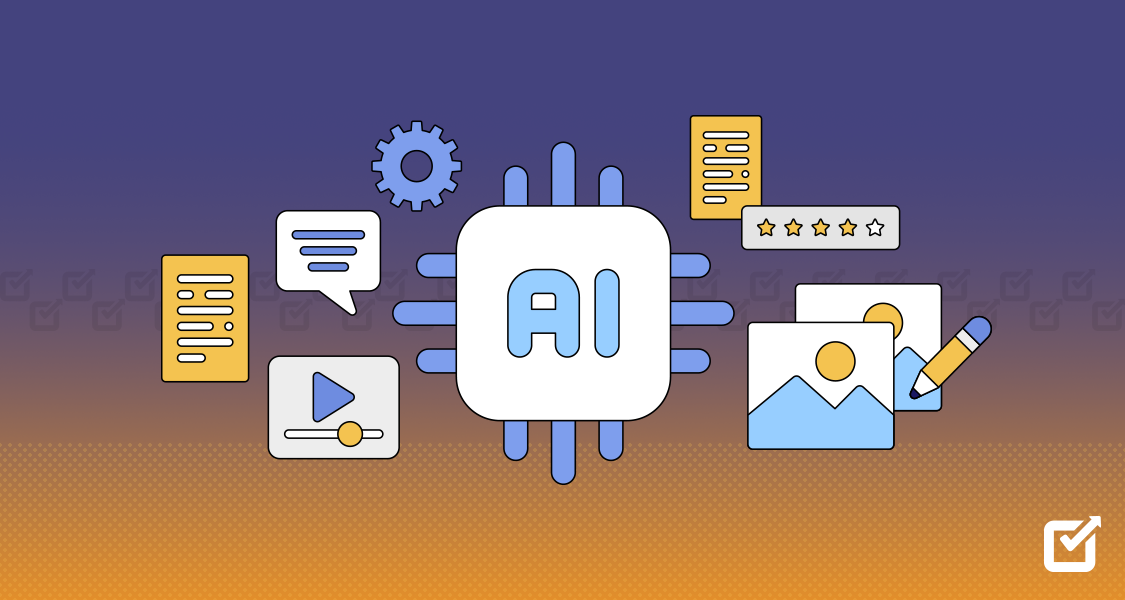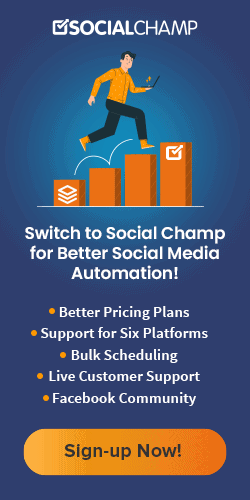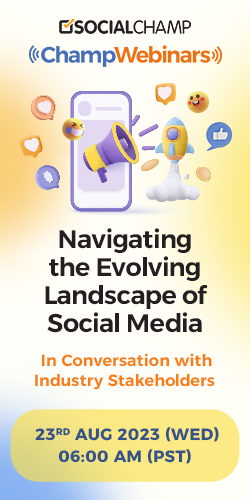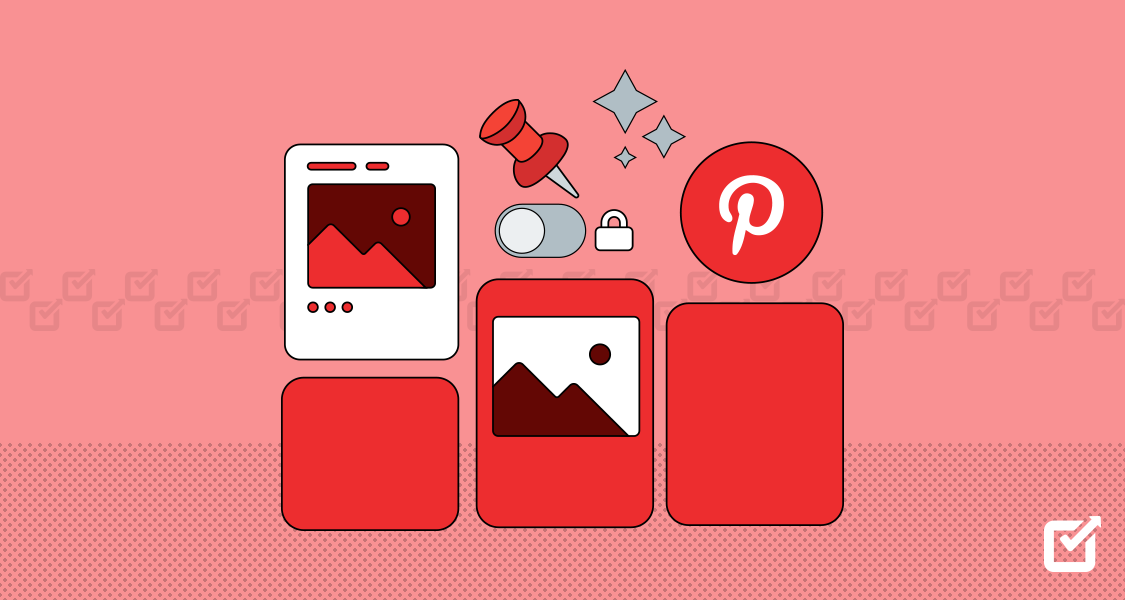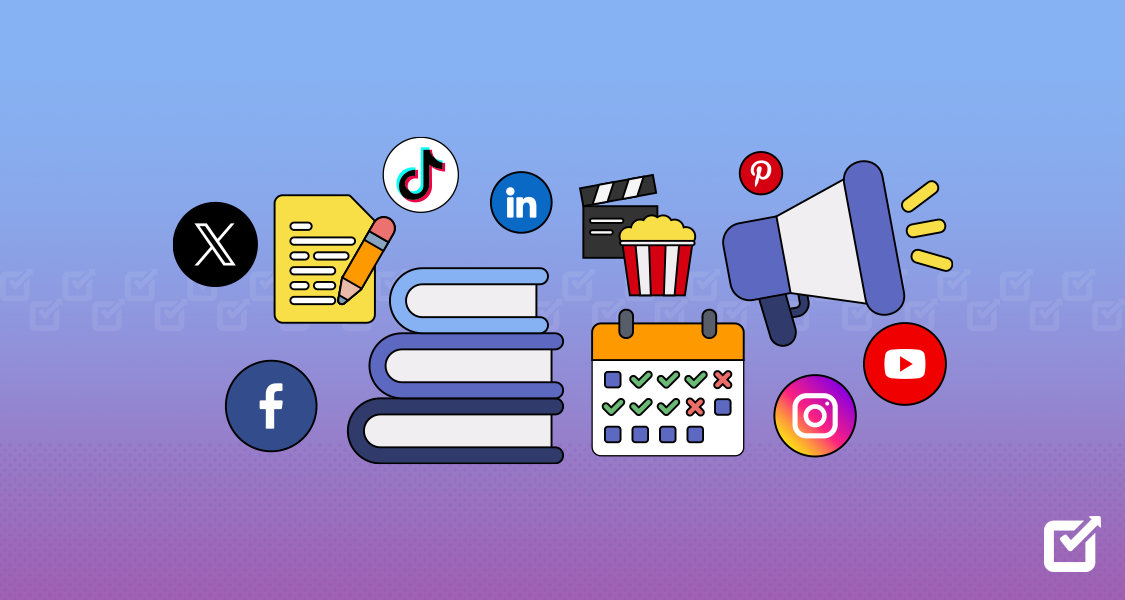Creating top-notch content is no walk in the park, that’s for sure. Ask any content creator, and they’ll tell you it’s a whole journey.
From brainstorming ideas and drafting a content calendar to crafting the content, tweaking it to perfection, and hitting that publish button, there’s a whole lot happening behind the scenes.
According to gurus, the content creation process can stretch from weeks to months to get everything just right.
Now, imagine adding AI into the mix. Sounds futuristic, doesn’t it? But it’s happening right now, with AI-generated content leading the charge, changing the game in ways we never thought possible.
If you’re a content creator or marketer and you’re considering creating content using an AI assistant tool, it’s crucial to understand both the benefits and limitations of this undertaking.
This article aims to cover everything you need to know about AI-generated content so you can make informed decisions and harness its power effectively in your content strategy.
What Is AI-Generated Content
AI-generated content is content that you create with the assistance of an AI-enabled tool. This can include a wide range of content types, including:
Articles and Blog Posts
Artificial Intelligence (AI) can generate written content on various topics, such as news articles, blog posts, or informational articles. For example, AI algorithms can produce blog posts on topics ranging from technology and finance to fashion and lifestyle.
Here’s a snippet of AI-generated content article by ChatGPT-3.5:

Screenshot of ChatGPT Prompt Product Descriptions
E-commerce platforms utilize AI to generate product descriptions for their listings. AI algorithms analyze product attributes and specifications to create compelling and informative descriptions that attract potential buyers.
Amazon is one of the largest e-commerce platforms that leverage AI to generate product descriptions for millions of items available on its website. See below:

Screenshot of Product on Amazon Social Media Posts
AI can generate social media posts for platforms like Twitter, Facebook, or Instagram. These posts can include text, images, or even videos tailored to engage audiences and promote brands or products.
Here’s an example of a social media post made using an AI-generated content generator:

Screenshot of a Social Media Post Email Newsletters
Businesses use AI to generate personalized email newsletters for their subscribers. AI algorithms analyze user data and preferences to create customized newsletters with relevant content, promotions, and updates.
Here’s a snippet of a personalized email newsletter:

Screenshot of an Email Related Article: AI in Email Marketing: Insights from Industry Experts
Design Elements
AI-powered design platforms generate visual content, such as logos, graphics, or illustrations. These platforms use algorithms to create unique and eye-catching designs based on user input or predefined templates.
Looka is one of the most popular platforms that allows users to generate visual content. You can create logos, social media covers, business cars, and so much more. See below:

Screenshot of Visual AI-Generated Content Music and Audio Content
AI algorithms can compose music, generate lyrics, or produce audio content, such as podcasts or voiceovers. AI-generated music can range from background tracks for videos to fully composed songs in various genres.
One example of an AI tool for generating audio content is Podcastle.

Screenshot of Podcastle This AI-generated content generator enables you to clone a digital copy of your voice. With this groundbreaking feature, you can achieve unparalleled flexibility and efficiency in audio production. Whether it’s for podcasts, audiobooks, or voiceovers, Podcastle empowers you to replicate your unique vocal style seamlessly, saving time and effort in the recording process.
Video Content
AI tools can create AI generated content video by combining images, text, and audio elements. For example, AI-powered video editing tools can create slideshow videos, promotional videos, or explainer videos using pre-existing assets or generated content.
Here’s an example of an AI-generated content video:

Screenshot of AI-generated Content Video The above seven examples demonstrate the versatility of AI generated content across different formats and industries, showcasing how AI algorithms can automate and enhance content creation processes.
Supercharge your Content Creation with Social Champ!
Take your content creation to the next level with a free AI assistant tool that helps you plan, curate, schedule, and analyze your social media posts.
How Does AI Content Generation Work
There’s a lot of complex technology behind the scenes, including algorithms and machine learning models. But at its core, AI content generation is about teaching computers to understand and mimic human language.
Think of it like this: you’ve got this super-smart computer system trained on massive amounts of human-written text. It’s been fed books, articles, social media posts, you name it.
Now, this computer isn’t just storing all this information; it’s learning from it. It’s picking up on the patterns of language, how sentences are structured, the tone of writing, and so on. It’s essentially learning to speak human language fluently, just like we do.
When you give this AI system a prompt or a topic, it gets down to business. It sifts through all that data it’s trained on, finds relevant information, and then uses its understanding of language to generate new content.
What’s With All the Hype Around AI-Generated Content
You’ve probably heard whispers about it here and there, right? Well, let me tell you, there’s quite a bit of excitement swirling around this topic.
Now, why all the hype? Well, imagine you’re a content creator with fast-approaching deadlines. Suddenly, you’ve got this AI tool that can take most of the weight off your shoulders.
And not just any AI tool, but one that’s tirelessly churning out content at lightning speed. Instead of spending hours writing, designing images, or creating videos, you get your content ready in a matter of minutes, thanks to an AI tool.
Plus, AI-generated content TikTok isn’t just about quantity; it’s about quality too. These systems are getting smarter by the day, learning from vast amounts of human-written text to produce content that’s pretty darn close to human-generated content.
Sure, there’s still some skepticism floating around, and rightfully so. We’re not quite at the point where AI can replace human creativity and intuition. But the possibilities? They’re pretty intriguing.
So, yeah, that’s what’s up with all the hype around AI generated content.
What AI-Generated Content Means for Content Creators
When you leverage AI to generate content, you can automate repetitive tasks such as generating AI-generated content articles, blog posts, product descriptions, or social media posts, freeing up valuable time for more strategic and creative endeavors.
So, AI for content generation empowers you to work smarter, not harder, and ultimately leading to more impactful and engaging content experiences.
However, it’s crucial to recognize that AI is a tool, not a replacement for human creativity and intuition. It’s more like a backstage helper, supporting content creators behind the scenes. As such, humans still play a pivotal role in crafting compelling narratives and connecting with audiences on a deeper level.
Related Article: The 15+ Best AI Tools for Social Media in 2025
What AI-Generated Content Means for SEOs
For SEOs, AI-generated content represents both opportunities and challenges. On the one hand, AI can help automate and scale content creation, allowing SEO experts to produce a higher volume of optimized content more efficiently.
What’s more is that AI algorithms can analyze search trends and user behavior to generate content that aligns closely with search intent, improving organic visibility and driving more traffic to websites.
However, there are also potential pitfalls to consider. For instance, AI generated content may lack the depth, nuance, and authenticity of human-created content. This can potentially lead to lower engagement and conversion rates.
Moreover, there’s a risk of producing low-quality or duplicate content, which could harm search rankings and damage brand reputation.
Ultimately, SEOs need to strike a balance between leveraging AI for content creation and ensuring that the content maintains high quality and relevance. They should combine data-driven insights with creative storytelling to deliver content that resonates with both search engines and human audiences.
Benefits and Limitations of AI-Generated Content
Amidst its allure, there are nuanced considerations regarding both its limitations that demand closer examination.
Let’s take a look at the pros and cons of AI-generated content so you can decide whether it’s right for your content marketing strategy.
Pros of AI-Generated Content
If you’ve read this article up to this point, you’ve picked several advantages and disadvantages of AI-generated content. Now, let’s go into the details, so you can decide if AI-generated content is right for your marketing strategy:
Efficiency
Even seasoned writers can spend hours or even days meticulously crafting an article to ensure it’s of high quality. But when you’ve got a backlog of articles to churn out, that time can quickly add up. That’s where AI-generated content swoops in to save the day.
Instead of agonizing over every single word, AI steps in with its algorithms and machine learning wizardry, cranking out content at lightning speed. It does the heavy lifting, freeing up your time so you can focus on the big picture.
Scalability
If your company is riding the wave of rapid growth or navigating through fiercely competitive industries, the pressure to keep up with content demands can be intense. That’s where AI-generated content online comes in as your ultimate ally.
With its ability to swiftly churn out content, AI allows you to scale your production efforts without sacrificing quality. Whether it’s cranking out blog posts, product descriptions, or social media updates, AI ensures that you can keep pace with the demands of your expanding audience or competitive landscape.
Consistency
Consistency is key when it comes to content creation – it’s what keeps your brand voice strong and your audience engaged. Furthermore, consistent brand presentation across all platforms can boost your revenue by up to 23%.
But let’s face it, maintaining that consistency across all your channels and content types can be a real challenge. AI generated content can help you overcome this obstacle. This is because AI technology doesn’t have off days or creative slumps. It’s always on point, always delivering content that’s spot-on with your brand’s style and tone.
Whether it’s crafting product descriptions, blog posts, or social media updates, AI ensures that your message stays consistent no matter where it’s being shared.
So, when your audience encounters your content, whether it’s on your website, social media, or email newsletters, they know exactly what to expect – that familiar voice that they’ve come to know and trust. And that’s priceless when it comes to building brand loyalty and keeping your audience coming back for more.
Personalization
According to a study by Epsilon, 80% of consumers are more likely to buy from brands that offer personalized experiences. In a world where consumers are bombarded with content left, right, and center, standing out from the crowd with personalized content is crucial. Well, that’s where AI does its magic.
With its data-crunching abilities, AI can analyze tons of information about your audience – their preferences, browsing history, even their favorite color socks (okay, maybe not that last one). Armed with this data, AI can then churn out content that feels like it’s been tailor-made for each individual.
So, whether it’s a customized email, a personalized product recommendation, or even a targeted social media ad, AI generated content helps you speak directly to your audience, making them feel seen, heard, and valued.
Cost-Effectiveness
Back in the day, if you needed to scale up your content production, you had to bring in extra hands. That meant outsourcing work to freelancers or agencies, and that could get pretty pricey.
With AI generated content, you don’t have to shell out big bucks for every piece of content. Nope, AI does the heavy lifting at a fraction of the cost. It’s like having a content-producing powerhouse that doesn’t clock in hours or demand a paycheck.
And let’s be honest, who doesn’t love saving a few bucks while still getting top-notch content? It’s a win-win situation all around.
Cons of AI-Generated Content
Every silver lining has its own cloud, and AI-generated content is no different. While it offers numerous benefits, there are also limitations to consider.
Here, we’ll delve into five drawbacks of AI-generated content.
Lack of Creativity
AI may be a whiz at crunching numbers and analyzing data, but when it comes to creativity and intuition, it falls a bit short. Most people say that AI-generated content online doesn’t have that spark that human-generated content has.
And that’s where the danger lies. If your content feels generic or uninspired, it’s easy for it to get lost in the sea of sameness, leaving your audience scrolling past without a second glance.
So while AI can be a valuable tool in your content arsenal, it’s essential to balance its efficiency with the human touch that makes your content truly stand out. You can use an AI-generated content detector to identify areas of your content that sound robotic and add your human touch.
Inaccuracy
Despite advances in AI technology, there’s still a risk of producing low-quality or inaccurate content. It’s not great at picking up on context, reading between the lines, or understanding cultural nuances – you know, the stuff that makes us human.
So, imagine if your AI-generated content on TikTok accidentally uses a phrase or image that’s totally off-base or even offensive. Yikes, right? That’s not just a minor blip; it’s a potential PR nightmare waiting to happen. Your brand’s reputation could take a serious hit, and recovering from that could be a real uphill battle.
That’s why it’s crucial to tread carefully when relying on AI for content creation. You should use an AI-generated content detector to identify problematic areas and give your content some human oversight. You can double-check and triple-check that the content hits the mark and aligns with your brand values. Because when it comes to your brand’s reputation, there’s no room for errors.
Inflexibility
Trends come and go faster than you can say “tweet.” That’s why it’s essential to have your finger on the pulse at all times. When you’re in tune with what’s happening in the world, you can create content that resonates, engages, and ultimately drives results.
AI, as smart as it is, can sometimes lag behind when it comes to catching the latest wave. If you’re relying solely on it to churn out your content, you might find yourself paddling furiously to catch up. Your content could end up feeling outdated or out of touch, like showing up to a party in last season’s fashion.
Being fashionably late isn’t always a good thing in the content writing industry or anywhere else.
Difficulty in Niche Topics
You’ve got a blog about quantum physics, and you want to crank out some top-notch content that really dives into the nitty-gritty. Sounds like a job for AI, right? Well, not so fast.
AI might be a whiz at crunching numbers and analyzing data, but when it comes to wrapping its digital brain around complex subjects or industry jargon, it can miss the mark.
If you’re relying solely on AI to generate content on niche topics, you might end up with something that’s more miss than hit. It could be riddled with inaccuracies, misunderstandings, or just plain gibberish.
In the world of niche topics, where credibility is king, that’s a risk you probably don’t want to take. So, it’s essential to pair AI with good old-fashioned human expertise when tackling those specialized subjects.
Ethical Concerns
Studies reveal that 90% of consumers consider brand authenticity an important factor when deciding which brands they like and support.
In a world where trust is everything, being upfront about where your content comes from is non-negotiable. If your audience feels like they’re being fed content that’s not genuine or authentic, it’s game over for trust and credibility.
Unfortunately, AI can be a bit of a wild card when it comes to copyright and plagiarism. Without proper attribution or disclosure, things can get messy real quick. It’s like borrowing your friend’s homework and forgetting to change the name at the top.
At the end of the day, trust and credibility are worth their weight in gold – and no amount of AI-generated content is worth sacrificing that. So, what’s the solution?
Well, it’s all about striking the right balance between efficiency and ethics. That means ensuring that your AI-generated content is properly sourced, attributed, and disclosed.
Take Control of Your Social Media Schedule
Plan, organize, and automate your posts effortlessly with Social Champ’s powerful scheduling feature.
Conclusion
While there are certainly drawbacks to be mindful of, many content creators find that the benefits outweigh the cons. Having considered both the pros and cons of AI-generated content, you’re now equipped to make an informed decision about whether to incorporate it into your marketing strategy.
As you seek to streamline your content creation process, it’s essential to leverage tools that can help you stay organized and efficient. Social media management platforms like Social Champ can be invaluable assets in your toolkit. With features like content scheduling, analytics tracking, and audience engagement tools, this social media scheduler empowers you to manage your social media presence effectively, freeing up time to focus on creating high-quality content that resonates with your audience.
